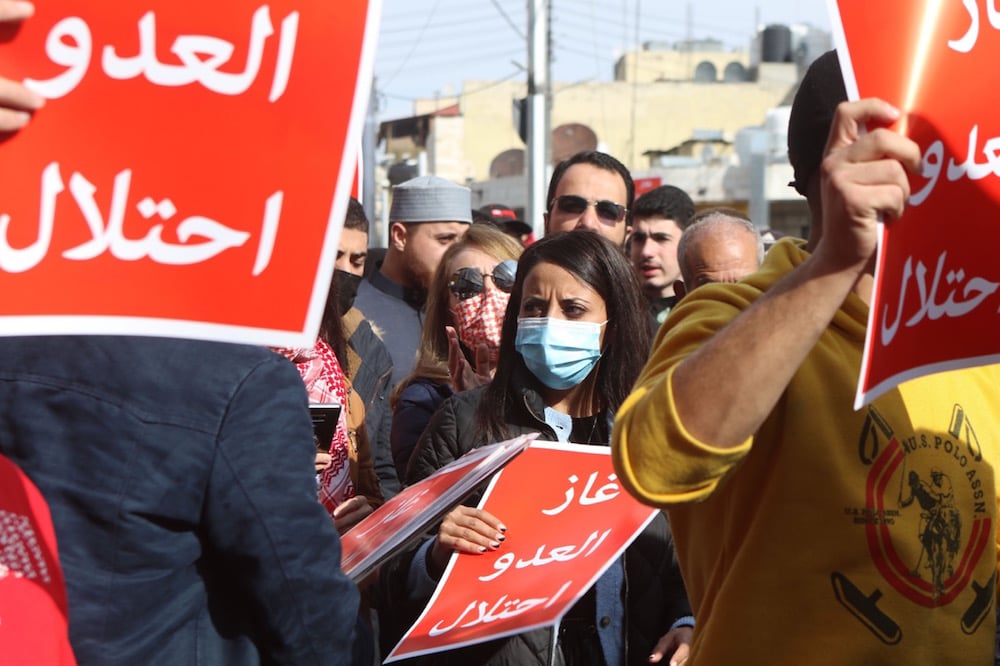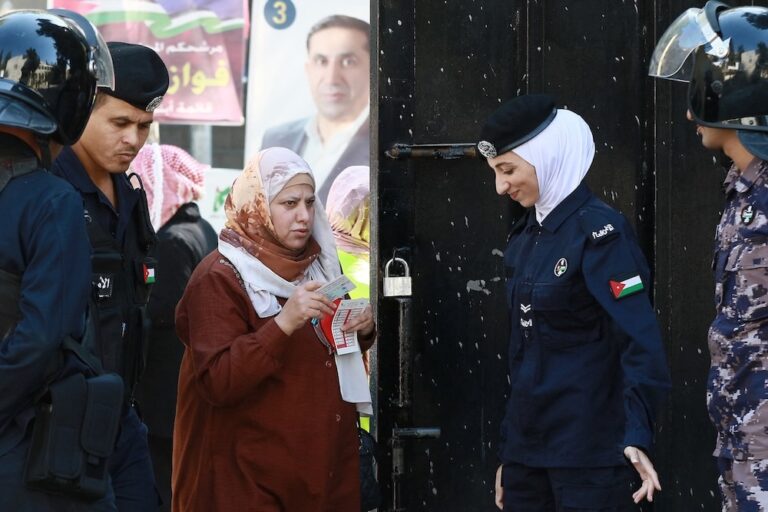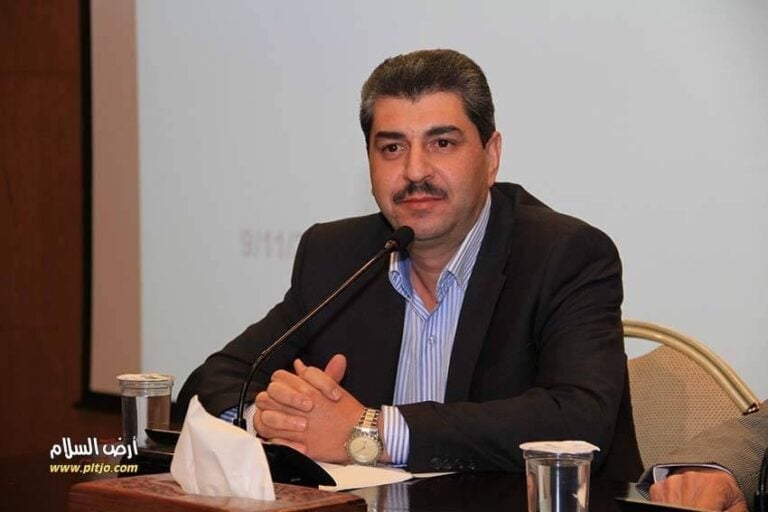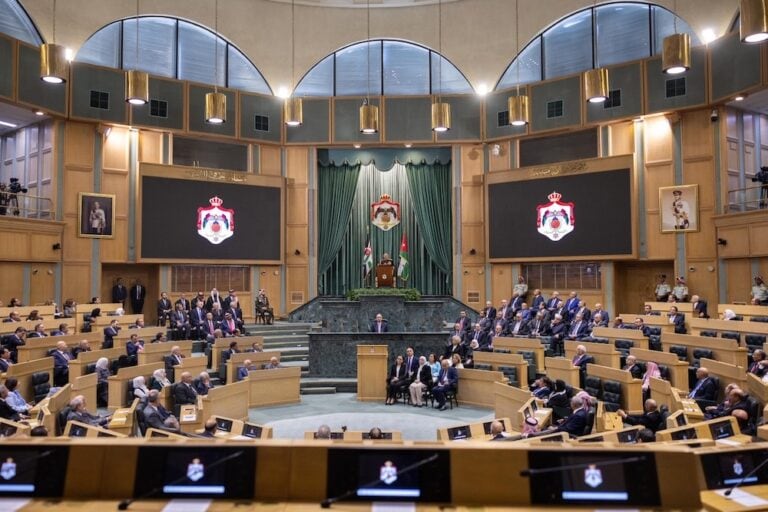The Gulf Centre for Human Rights (GCHR) calls on Jordanian authorities to immediately end repressive measures that have restricted freedoms in the country, including the right to free expression and peaceful assembly.
This statement was originally published on gc4hr.org on 3 January 2022.
The events that took place in the past year confirm Jordan’s transformation into a repressive state. This has been demonstrated by many events, including the blatant attack on unions, especially the Teachers’ Syndicate, as well as the arbitrary arrests of trade unionists, journalists, students, civil society activists, and political activists. In addition, civil liberties, including the freedom to form associations and civic organizations, freedom of peaceful assembly, and freedom of expression online and offline remain severely restricted in Jordan, and anyone who criticizes the authorities is harassed, arrested, and imprisoned.
The Covid-19 Pandemic has exacerbated fears in the country, revealing the fragility of social justice and the government’s failure to guarantee civil rights and political participation, especially in light of defense orders in force during the pandemic.
Popular rejection of normalization
Jordanian streets are currently in a state of anger and popular rejection over what has been called a “declaration of intents” that was signed in November 2021 between Jordan and Israel, in addition to the UAE. The declaration aims to start a feasibility study for an Emirati company to generate renewable energy and water desalination and transmission for Jordan in a joint energy and water project, entitled “Electricity for Water”.
Jordanian public opinion, whether parliamentary, partisan, or Internet activists on social media platforms, generally leaned against this declaration at a time when there is a widespread violation of the rights of the Palestinian people, including the right to self-determination.
Social media platforms were crowded with opinions rejecting the project, and activists launched the hashtag “normalization is treachery” on Twitter, which witnessed more than 10,000 tweets condemning the agreement, in addition to calls for demonstrations in the downtown area of the capital, Amman.
A number of activists rejecting the project gathered near the Interior Square in the center of the Jordanian capital, Amman, in an attempt to organize an open sit-in to protest the agreement. About 13 of them were arrested for expressing their rejection of the agreement and calling for a protest against it. They were later released after a brief detention.
Students in Jordanian universities also carried out mass vigils expressing their absolute rejection of this agreement. However, they soon received direct threats from the Dean of Student Affairs at Al-Zaytoonah University that they would be expelled for participating in protests on the university campus.
The Dean, supported by university security personnel, also prevented the stand from taking place, which prompted the students to change its location. The Dean then asked some members of staff who accompanied him to photograph the faces of the participants and issue targeted threats of dismissal and punishment against each person who participated in the protests. The security forces had withdrawn the University ID cards of a number of Al-Zaytoonah University students, and subjected them to investigation committees, before canceling these orders and returning their identity cards to the students, after pressure from the student unions.
Syrian journalist arrested and threatened with deportation
On 17 November 2021, the security forces, acting on direct orders from the General Intelligence Department, stormed the home of Syrian journalist Ibrahim Awad in the capital, Amman. They arbitrarily arrested him without giving reasons or bringing any specific charges against him and confiscated all his personal electronic equipment.
He was transferred on the day of his arrest to the UN-run Azraq refugee camp, 100 km east of Amman, where he reportedly remains under house arrest and faces overnight deportation to his home country of Syria.
Reliable local sources confirmed that he was beaten, harassed and ill-treated while being transported by a security forces vehicle to the camp,
Ibrahim is 33 years old and married with two children. He has lived and worked for various media organizations in Jordan since leaving his home in Daraa Governorate, Syria, in 2015. He works as a freelance journalist covering human rights, the conflict in Syria, and violations by the Syrian government. He used his Twitter account to monitor the violations that were taking place in Syria.
Recommendations
Despite official statements about reform, including the outcomes of the Political System Modernization Committee, which provides broader guarantees for political reform, the evidence confirms that the restrictive approach is violating political, trade union and public freedoms guaranteed by law and the constitution.
Once again, the Gulf Centre for Human Rights (GCHR) condemns in the strongest terms all the arbitrary measures taken by the Jordanian authorities and their systematic repression of civil society activists and peaceful protestors, including citizens and students. The Jordanian government should provide full protection to journalist Ibrahim Awad, as his forcible return to his country of Syria would put his life in grave danger. The Jordanian government must immediately stop its repressive measures and protect public freedoms in the country, including freedom of expression and freedom of peaceful assembly and demonstration.



